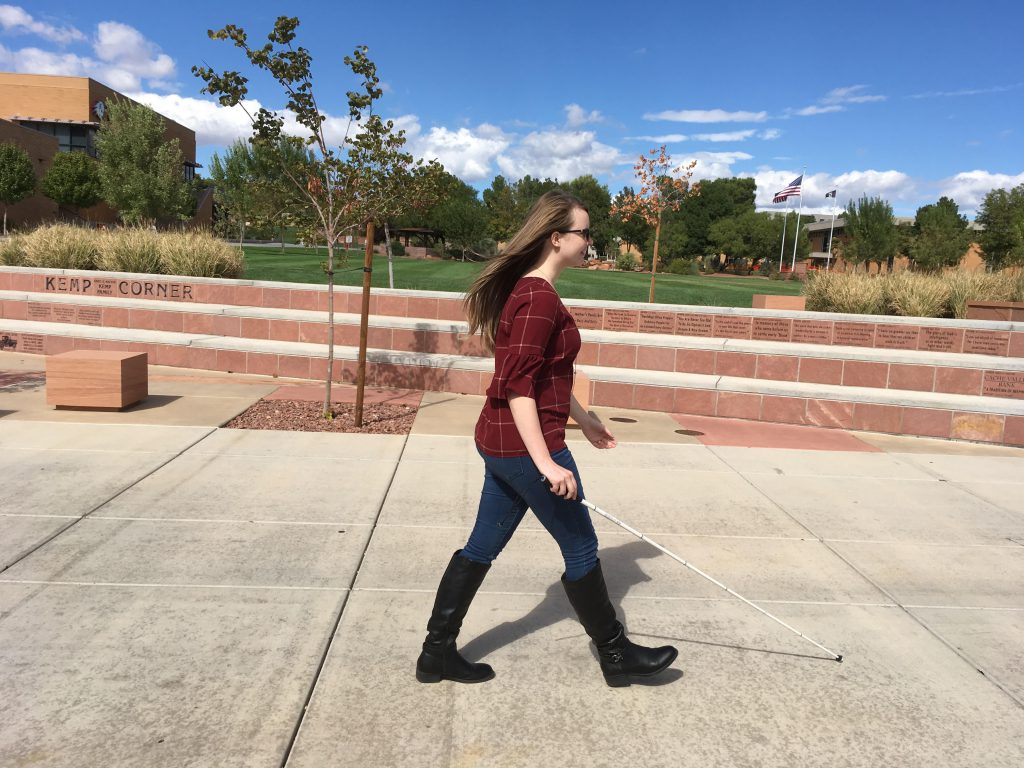During freshman year, eight friends and I studied in the old library and watched the sun set from Dixie Rock; only two of us are still here 12 months later.
This story isn’t uncommon at Dixie State University. Administrators and the DSU Student Association are seeking higher student retention through the introduction of two new programs this fall.
The First Year Advising Program pairs “at-risk” students—those with a 2.3 high school GPA or lower and sub-19 ACT score—with both an adviser and student mentor. The Freshmen Interest Groups, or FIGs, tie three courses together, and these classes consist of the same students attending all three courses in an effort to give them friend-making opportunities and more structure. Their potential success rates have huge ramifications on future DSU retention efforts.
In the past, administrators encouraged incoming students to seek counseling if they struggled academically. Now, if their grades and test scores hover around the set numbers, they’ll receive notification of the First Year Advising Program, requiring visits with an adviser.
Hopefully these students’ prior experiences with counselors and other school officials weren’t like mine.
I hurled a notebook at the wall out of frustration as a high school sophomore and made my junior prom date cry over morning announcements senior year; the counselor and principal found me in both instances. These instances were the only times school officials dug into certain aspects of potential problems and their roots—when trouble followed.
Meeting with authority figures makes students feel they’re in trouble before stepping foot in a college classroom.
FIGs feature an element David Roos, executive director of enrollment services, said significantly increases retention rates: the positive influence of fellow students. FIGs encourage students to befriend classmates and form study groups. After all, some interaction must arise when the same people are with each other around eight times a week.
But FIGs only work when classmates make connections. Students may feel like they’re being pushed to make friends, and if a majority of them are incompatible, the three classes will feel stale. The expected study groups might be nothing more than feeble attempts at meeting the program’s expectations.
Or, the opposite might be true: Compatibility could ruin learning.
In high school, I took most classes with my friends; we watched viral videos, drank soda and farted. These were good times.
Without strong, in-class friendships later on, though, the classroom was different because the fun ended. I suffered in the new environments because I grew too accustomed to relying on a friendly environment.
An interesting aspect of college is the random people in each class. High school and college are nothing alike; in fact, the same students grouped in numerous classes highlights an element that hurts many freshmen’s experiences: They’re too accustomed to knowing the same people, which doesn’t give an incentive to branch out. When students take multiple classes with the same students in FIGs, they will only rely on those friendships.
DSU can’t expect to retain students who have completely unrealistic expectations of college or who would simply rather move from home for a year and play than enter the workforce. Becoming mentally prepared and self-sufficient enough for college takes years, not a semester.
Administrators and the DSUSA collaborated in deciding to add mentors to the First Year Advising Program and deserve praise for tackling problems with numerous plans. As someone who’s served in various leadership positions, I understand how difficult making young adults believe in a movement or activity that doesn’t include “Call of Duty,” sexual tension or blaring top-40 music is. Planning anything that covers educational topics leaves attendees sleeping and unmotivated.
Although I argue retention rates aren’t as significant as a smaller student population that thrives, a large factor should affect return rates soon.
University status changes people’s perceptions. I don’t expect drastic changes, but exceptional high schoolers should take DSU more seriously, therefore, molding a student body with real goals and aspirations. On the other hand, people who look at attending college as only fun and games won’t make the move in the first place.
DSU presents a fine educational experience. My seven friends from last year didn’t leave because better educational opportunities came but because they didn’t acquire skills higher learning requires, which is a problem on a larger scale. Big-wigs in education must develop programs to give high schoolers insight on college before they arrive.



